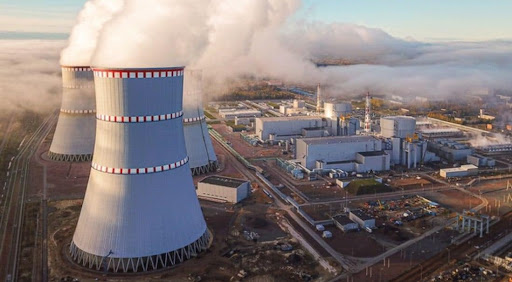The United States of America and Japan have strengthened cooperation to support the deployment of small modular reactors (SMRs) and other advanced reactor technologies in partner countries, beginning with Ghana.
The announcement was made at the IAEA International Ministerial Conference on Nuclear Power in the 21st Century, recently held in Washington DC.
According to a statement by the US State Department, the two countries signed the agreement through their representatives, the US Secretary of State for Arms Control & International Security, Bonnie Jenkins, and Japan’s State Minister of Economy, Trade & Industry, Ota Fusae, at the establishment of the Winning an Edge Through Cooperation in Advanced Nuclear (WECAN).
The State Department noted that WECAN “reaffirms commitments by Japan and the United States to energy innovation, energy security, and global clean energy transition in a smart, cost-effective, and secure way by advancing the latest technology and commercial leadership in emerging technologies that provide firm, reliable electricity and industrial heat.”
Read also: SA clean energy startup wins at the GEA Summit
The Nuclear Energy
In its initial steps focused on enhancing the relationship under WECAN, the USA and Japan announced a partnership with Ghana to aid its ambition to be the first to deploy SMRs in Africa and to become an advanced nuclear technology hub.
“Support under WECAN can include prerequisite technical and regulatory assistance and feasibility studies for those countries to pursue innovative nuclear technologies that increase access to clean, reliable energy and support climate objectives,” the State Department noted.
“WECAN is designed to create viable projects for the deployment of advanced nuclear technologies to support energy security goals, facilitate power-sector decarbonisation, and foster decarbonisation in other energy sectors, like heavy industry. This pipeline development for net-zero-enabling technologies aims to support clean energy access in countries around the world.”
This came a day after US Under Secretary of State for Arms Control & International Security Bonnie Jenkins, US Assistant Secretary for Nuclear Energy Dr Kathryn Huff, Ghana’s Deputy Minister of Energy William Owuraku Aidoo, and Japan’s Economy Minister Fusae at the Washington conference announced a strategic collaboration to support the deployment of small modular reactor (SMR) technology in Ghana, “considering the current state of technology neutrality of Ghana’s nuclear power programme”.
The US State Department said: “The collaboration to support the deployment of SMRs in Ghana is subject to Ghana’s nuclear regulation and US export controls. In line with IAEA Milestones Approach for building a nuclear power programme, the three countries committed to upholding the highest standards of nuclear safety, security, and non-proliferation.”

The announcement is a sequel to the visit to Ghana in October by the Deputy Secretary of Energy, David Turk, and an interagency team, including the State Department, “for consultations on enhancing cooperation on civil nuclear energy with the Government of Ghana and its agencies, including Nuclear Power Ghana and the Ghana Atomic Energy Commission.”
The State Department highlighted that “countries in the trilateral cooperation recognize that the final decision on which technology to deploy in Ghana rests with the Government of Ghana.”
It also explained that through these joint efforts, “Ghana has the opportunity not only to demonstrate leadership in advancing energy security and climate action globally but also establish itself as a regional center of excellence in Africa for the deployment of innovative nuclear technologies.”
Japan Supports Ghana With SMR Feasibility Study
As an initial step to support the deployment of SMRs and establish Ghana as a regional SMR hub, the Government of Japan is supporting an SMR feasibility study to be carried out by Japanese and US industry—IHI Corp., JGC Corp., Regnum Technology Group, and NuScale Power—in collaboration with the Government of Ghana through its agencies, Nuclear Power Ghana, the Nuclear Regulatory Authority, and the Nuclear Power Institute of the Ghana Atomic Energy Commission. The study includes a survey for the possible deployment of a NuScale VOYGR SMR NPP, as well as an assessment of the existing infrastructure and an analysis of the opportunities in the Ghanaian market for the supply chain.
The State Department also noted that the USA is assisting a targeted Ghana SMR Workforce Development Initiative under the Foundational Infrastructure for the Responsible Use of SMR Technology (FIRST) capacity-building program.
“Through trilateral efforts on workforce and supply chain development, Ghana will be in a good position to help SMR projects in Ghana and the rest of Africa,” the announcement said.
In March 2022, the USA and Ghana announced a partnership to support Ghana’s adoption of SMR technology under FIRST, which was launched by the State Department in April 2021. Ghana has already started using the Milestones Approach from the International Atomic Energy Agency, which helps countries that are thinking about or planning their first NPP.
